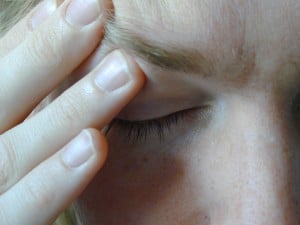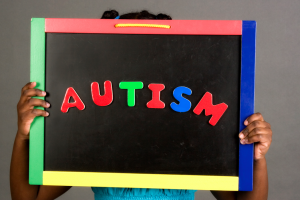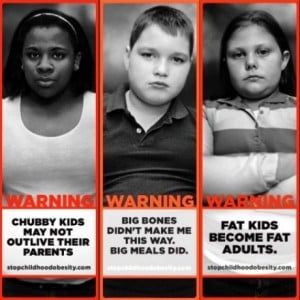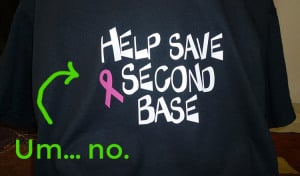
EF
When Buzzfeed released “17 Reasons Why Asian American Men (or Any Other Western Asian) Make the Best Boyfriends,” I immediately shared it with everyone I knew. Yeah, Asian-American men are sexy! But after the third time skimming through the piece, I realized this “positive” piece about Asian-American men was pretty damn problematic.
Why does Buzzfeed even need to convince us that Asian-American men are sexy?
Ah, right, because we (as a society) have somehow been misinformed about Asian-American men through persistent myths and caricatures in the media and in our daily lives. Thanks, racism.
By the way, most of Buzzfeed’s 17 reasons tell us that Asian-American men are just like other typical men in the US who cook, care about family, and are loyal to their partner.
What? You mean Asian-American men are like regular guys, too? Our current perspective on Asian-American men must be pretty screwed up if we need to be assured that Asian-American men are—ya know—average.
So why is it so hard out there for Asian-American men? Let’s uncover some lies.
1. Asian-American Men Have Small Penises
Alright, let’s get this bit about penis size out of the way.
I scoured the Internet for reliable studies regarding penis sizes. (May my boyfriend never find all my searches for “Asian man penis size.”)
The conclusion? I couldn’t find any research that was remotely reliable. (Seriously, any research based on self-reported data, well, is not real research.) Instead, I found mostly forums (“Do Asian men really have small penises?”) and personal testimonies (“I’ve been dating my Asian boyfriend for two years, if you know what I mean. Wink wink”). Sigh.
Want actual facts about penises? Melissa A. Fabello has got the hook up.
But the persistent stereotype that Asian men have small penises is actually a part of ethnic body policing. Yes, ethnic body policing.
Remember Sarah Baartman, the Hottentot Venus? Her body parts – mainly her buttocks and genitals – were exhibited as part of 19th century freak shows in Europe to represent the “wild and savage” black female body.
They called this comparative anatomy – because apparently, the white female body represented the “norm.” And because racism.
In the same way, black men have been equated with larger-than-average penis sizes. Black men are seen as animalistic and sexually aberrant, and therefore must have massive penises to match. In all situations, we assume that white people are the norm. Simply put, white body parts are not policed in the same way, but rather are held as the standard to which other bodies are compared. Just ask Serena Williams.
When we make the assumption that all Asian-American men have small penises, we are doing the same thing.
We are objectifying a group of people down to their body parts.
As James Baldwin elaborates in Just Above My Head, “its color was its size.”
It’s not really about size. It’s about color and the meanings we have assigned to color.
2. Asian-American Men Are Effeminate – And Therefore, Not Real Men
So I have an issue with the idea that anyone represents a “real” man or woman, period. When we categorize someone as a “real” man, we are really just preoccupied with penises, vaginas, and social rules. What makes a “real” man, really?
If “real” men are those who have lead roles on TV and “get the girl” in movies, then Asian-American men certainly aren’t “real” men.
Media has traditionally painted Asian-American men as sidekicks who serve as comic relief (see: Ken Jeong in any of his roles, such as The Hangover), are extremely nervous or silent around girls (see: The Big Bang Theory’s Raj Koothrappali, an Indian astrophysicist who is unable to speak to women for six seasons), are short and deeply accented (see: Han in 2 Broke Girls), and sidekick samurai warriors (yes, apparently, you can be Asian and still be a sidekick in a movie about samurai; I’m talking to you, The Last Samurai).
But Asian-American men are not weak and effeminate (whatever that means). Walking Dead’s Glenn Rhee, played by Korean-American Steven Yeun, shows us that an Asian-American man can not only “make it” in the zombie apocalypse, but he can also have a relationship built on love and trust. Definitely not weak. In fact, Glenn has become a leader on the show and makes trusted decisions.
Asian-American comedian Hari Kondabolu uses his humor and wit to tackle tough issues around race, sexuality, and class. Check out Hari Kondabolu pointing out social injustices. Like a “real” man. Again, whatever that means.
Spoken word artist Beau Sia proudly wears his pink sweater while he shares his experience as an Asian-American man. Check out Beau Sia’s passionate “Asian Invasion” on HBO’s Def Poetry Jam. He doesn’t look weak or timid to me.
When strong images of Asian-American men are practically invisible in mass media and their penises are supposedly invisible as well, this systematically erases Asian-American men from—well—being recognized as “real” men.
So it’s no surprise that Asian-American men are having a hard time meeting people online!
According to OK Cupid data, Asian-American men have an average rating of -7% by women; that’s compared to -2% for black men, -1% for Latino men, and a whopping positive 8% for white men.
We should also mention Elliot Rodger’s mass murders of innocent women and his two Asian roommates. Yes, Elliot Rodgers was an Asian-American man. His disturbing manifesto included a self-hate for his Asian identity that may have contributed to his rage and targeting of both Asian men (whom he despised) and white women (whom he desired). Unfortunately, he chose to deal with his feelings of masculine inadequacy with violence.
And this is not just a problem for heterosexual Asian-American men.
Asian-American men are also stereotyped and seen as less masculine within the queer community. Stereotyped as “small” on the size spectrum, Asian-American men in the queer community are often assumed to be “bottoms,” “feminine,” and “lesser than.”
3. Asian-American Men Are Nerdy and Always Have Jobs in Tech
Remember when William Hung sang “She bang, she bang” and gyrated his hips with a fist pump in the air on American Idol? I do. I remember hearing Asian-American families all over the country let out a collective sigh. It was hard to hear over America’s laughter though.
Crap. Another nerdy Asian-American boy on television to solidify the nerdy guy stereotype.
It had been a while since Long Duk Dong’s “What’s happening, hot stuff?”(cue the gong) a la Sixteen Candles. Long Duk Dong managed to simultaneously perpetuate the myth that Asians all have comical mono-syllabic foreign names and remind us to think about Asian penises. Again. (Seriously. What is this obsession with Asian men’s penises?)
These are not just harmless stereotypes. These jokes and jabs matter. They build up over time and have damaging effects. They matter because there are thousands of young Asian-American men struggling to belong and just live life without battling insensitive stereotypes.
Thankfully, a whole group of young and talented Asian-American men are redefining the media landscape and rewriting the nerdy image of Asian-American men.
Check out the Fung Brothers, NigaHiga, and KevJumba on YouTube. Whether they intend to or not, these young Asian-American men are showing Americans that Asian-American men are just—well—typical American men. Though they do touch upon racial stereotypes once in a while, these YouTubers mostly make funny videos about current events, food, and relationships. Like all young men.
William Hung is not my brother, but William Hung’s image is part of my brother’s daily struggle. I’m really excited about Taiwanese-American Eddie Huang’s upcoming show, Fresh Off the Boat, which will be based on his life growing up in Florida and listening to hip hop. That’s my brother’s childhood right there!
And you know what? Not all Asian-American men are nerdy or good at math either. In fact, when we think about the overwhelming statistics that Asians are better at math, we are usually referring to studies that compare American students to students in other Asian countries. News flash: Asian-American students are American students, too.
Studies that show Asian-American students exceeding in math are also problematic because they lump diverse Asian-American students under one big umbrella. The “Asian” category fails to show differences in academic achievement between classes, ethnicities, educational backgrounds, and economics. For instance, Hmong and Cambodian students are classified as “Asian,” but perform significantly lower than their classmates from East Asian backgrounds.
But what’s so bad about a “positive” stereotype that Asian-American men do well in school, you ask? Simple. When we assume Asian-American boys are doing well in school, we overlook individual needs. We fail to support our students who need the most help. Not all stereotypes are good. Don’t let the name “model minority” fool you.
Because of this myth, Asian-American men are being passed up for higher-level leadership positions.
In fact, the “model minority” myth is so pervasive that it has actually effectively distracted us from noticing the bamboo ceiling. While women in the workplace are butting heads with the glass ceiling, Asian-Americans are feeling the stall in their careers as well.
Asian-Americans hold only 2.6% of executive jobs at Fortune 500 companies. And lack of education is not the issue: Asian-Americans have the highest levels of education in the country where 42% of Asian-Americans have at least a college degree. So what’s the deal?
Asian-American men are having a hard time securing senior-level positions of leadership. According to a Fortune 500 study, 63% of Asian-American men feel stalled in their careers, which was a higher rate than that reported by African-American, Hispanic, and Caucasian men.
If qualified Asian-American men are being passed up for leadership positions, something else must be at play here. Until we start seeing Asian-American men as strong, capable leaders, we actively contribute to the barring of Asian-American men from leadership positions that they deserve.
4. Asian-American Men Can’t Play Sports (But They Can All Kung Fu)
Two words: Jeremy Lin.
And he happens to be a nerd who plays sports. (I mean, the boy went to Harvard.)
Here’s a list if you need more names: Michael Chang (tennis), Tiger Woods (golf), Troy Polamalu (football), BJ Penn (UFC fighting), Ron Darling (baseball), Apolo Ohno (Olympics speed skating), and Nathan Adrian (Olympics swimming).
Wow, and not a single name for table tennis!
You know the stereotype that Silicon Valley is full of white men and Asian men? And the stereotype that only black men excel at professional basketball?
We need to stop recycling these racially-driven stereotypes because they only perpetuate the idea that black men are physically deviant and that Asian men are intellectually divergent. Both of these assumptions fail to recognize individual skills and instead, stress the idea that racial makeup predetermines one’s abilities.
Some say that black women can’t code or be scientists. Some say Asian-American men can’t play sports.
I say it’s the same damn lie.
***
So when we hear people label Lorde’s Asian boyfriend as her “ching chong boyfriend” who “looks like the Chinese exchange student from Sixteen Candles” or claim that they are “the weirdest looking couple,” it’s hard to ignore the racial undertones.
Every comment is perpetuating the lies that Asian-American men have small penises, are effeminate, and are nerdy. The message is clear: Asian-American men are not good enough simply because they are Asian.
But Lorde’s non-reaction is perfection: “Was this supposed to make me feel something?”
#thankthelorde She’s knows what’s up: One’s race shouldn’t make us feel any differently.
Asian men make great boyfriends, brothers, and fathers.
They can also make bad boyfriends, brothers, friends, and fathers. Like all men.
[do_widget id=”text-101″]
Amy Sun is a Contributing Writer for Everyday Feminism. She has worked with providing resources and support for Asian/Pacific Islander survivors of domestic violence in the DC, Maryland, and Virginia areas. She also holds her Masters in Women’s Studies from the George Washington University, where she has researched the coming out processes for trans people who identify as FTM and MTF. In her past life, she was a middle and high school math teacher.
Search our 3000+ articles!
Read our articles about:
Our online racial justice training
Used by hundreds of universities, non-profits, and businesses.
Click to learn more




















